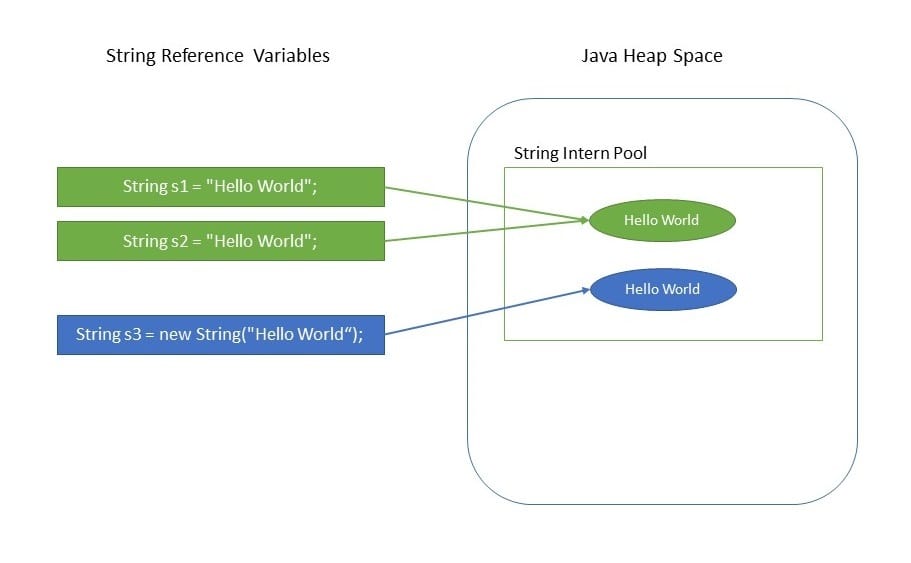Why Are Strings Immutable in Java? Secret Factors and Advantages Described
Why Are Strings Immutable in Java? Secret Factors and Advantages Described
Blog Article
What Is Unalterable Strings and Just How It Works
In the realm of programs, understanding the concept of immutable strings is critical for creating protected and robust applications. Unalterable strings refer to strings that can not be changed after they are created, making certain information honesty and predictability within the code.
The Essentials of Immutable Strings
Immutable strings, as a basic principle in programs, are character series that can not be altered once they are created. This implies that once a string is assigned a worth, that worth can not be changed. In languages like Python and Java, strings are unalterable things, causing different implications in regards to memory monitoring and data honesty.
Among the crucial advantages of immutable strings is that they provide a complacency in information control. Given that the material of an unalterable string can not be modified, it makes sure that the original data stays intact, lowering the threat of unplanned modifications during program execution (Why are strings immutable in Java?). This property also streamlines debugging processes, as developers can rely on that when a string is defined, its worth will certainly not be unintentionally modified
When a brand-new string is developed based on an existing one, instead than customizing the original string, the new worth is stored individually. In general, comprehending the basics of immutable strings is essential for mastering programming concepts and optimizing code performance.
Benefits of Unalterable Strings
Structure upon the safety and security and performance advantages of immutable strings, their benefits prolong to improving code integrity and simplifying simultaneous programs tasks. By being immutable, strings can not be changed after production, which eliminates the threat of unplanned adjustments in the information they keep. This fundamental immutability guarantees that once a string is created, its worth stays consistent throughout the program's implementation, decreasing the chances of insects caused by unanticipated changes.
In addition, unalterable strings contribute to code integrity by making it much easier to reason regarding the state of a program. Since strings can not be transformed, programmers can trust that a string will certainly always hold the very same worth, simplifying debugging and maintenance initiatives. This predictability brings about much more steady and reputable codebases.

Implementation in Shows Languages
Within numerous shows languages, the consolidation of immutable strings is a fundamental aspect that impacts just how data is taken care of and adjusted within code frameworks. The execution of immutable strings varies across different programs languages, with each language providing its check out this site own mechanisms to sustain this principle.

On the other hand, languages like C and C++ do not have built-in support for unalterable strings. Designers in these languages must manually execute immutability by enforcing policies within their code to stop direct alterations to string objects.
Finest Practices for Working With Unalterable Strings
When handling immutable strings in programming languages like Java and Python, adhering to best practices ensures secure and efficient data manipulation. One of the key finest techniques is to use StringBuilder or StringBuffer instead of straight controling strings, particularly when taking care of extensive concatenation operations. These courses provide mutable choices for string adjustment, helping to avoid unneeded memory allotments and boosting efficiency.
Additionally, when working with sensitive information such as passwords or API keys, it is important to stay clear of keeping them as simple text in immutable strings. Making use of protected storage space devices like char arrays or specialized have a peek at this site libraries for dealing with delicate details assists minimize protection threats associated with unalterable strings.
Real-world Applications and Instances
Checking out functional implementations of unalterable strings in different sectors discloses their considerable influence on data integrity and system integrity. In the health care sector, unalterable strings play an important role in making certain the security and privacy of client data. By stopping unapproved alterations to delicate information such as medical documents and prescriptions, unalterable strings help maintain conformity with strict privacy policies like HIPAA.
Banks also gain from the unalterable nature of strings to boost the safety and security of customer data and transaction records. Immutable strings aid avoid fraudulence and unauthorized changes to monetary information, offering a durable defense versus cyber threats and making anchor certain the trust and confidence of customers.

Conclusion
Finally, unalterable strings are dealt with and stable sequences of personalities that provide benefits such as string security and boosted performance in programs. They are applied in different programming languages to make sure information integrity and protection. Finest methods for dealing with immutable strings consist of avoiding straight alterations and utilizing methods that return new string things. Real-world applications of immutable strings consist of information encryption, caching, and string control jobs.
Unalterable strings refer to strings that can not be altered after they are created, guaranteeing information stability and predictability within the code. When a brand-new string is developed based on an existing one, rather than modifying the original string, the new worth is kept individually.In languages like Java and Python, strings are immutable by default, suggesting that when a string object is produced, its value can not be transformed - Why are strings immutable in Java?. Finest techniques for working with immutable strings consist of avoiding straight adjustments and making use of approaches that return new string items. Real-world applications of unalterable strings consist of information file encryption, caching, and string adjustment jobs
Report this page